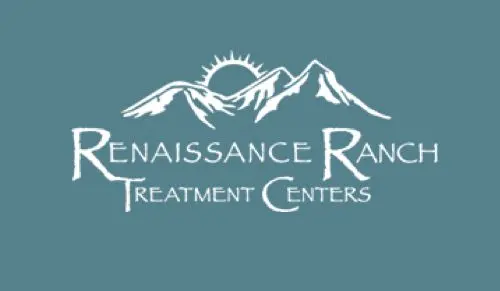I was consistently treated as a waste of time, the difference between successful and not successful business entities can be small actions like a 5-minute phone call to sort out an issue. If they are not capable of a good customer service, they should close
About Cold Creek Behavioral Health
Cold Creek Behavioral Health is an addiction treatment center for adults, located in Kaysville, Utah. In addition to rehab services, the center also offers case management and community referrals.
Addiction services at Cold Creek Behavioral Health include mental health assessments and counseling, detox, residential drug and alcohol rehab, and medication management.
Mental Health Assessment & Counseling
Assessments determine mental health status and addiction severity and are used to create a tailored treatment plan. Treatments include counseling, psychoeducation, and recovery meetings to achieve and sustain sobriety.
Inpatient Detox
Cold Creek Behavioral Health has an inpatient detox program to help individuals safely and comfortably detox from drugs and alcohol. Following detox, participants are referred to an addiction treatment program.
Substance Use Disorder Treatment
Addiction treatment programs rely on evidence-based practices to treat addiction and mental health conditions. They offer programs for adults aged 18,and older. Treatment begins with an assessment to determine individual needs, which informs an individualized treatment plan.
Medication Management
A mental health assessment with a psychiatrist can help to determine if medication may be supportive in the rehabilitation process. The patient meets with the psychiatrist several times for an assessment, diagnosis, and treatment plan development. They continue to meet at several intervals to determine progress and adjust medication as deemed necessary.
Rehab Score
Gallery
Other Forms of Payment
Self-pay involves paying for treatment out of your own pocket. You can use savings or credit, get a personal loan, or receive help from family and friends to fund your treatment. If you don't have insurance or your insurance plan doesn't cover a specific program, self-pay can help ensure you still get the care you need.
Private insurance refers to any kind of healthcare coverage that isn't from the state or federal government. This includes individual and family plans offered by an employer or purchased from the Insurance Marketplace. Every plan will have different requirements and out of pocket costs so be sure to get the full details before you start treatment.
Addiction Treatments
Levels of Care
Treatments
The goal of treatment for alcoholism is abstinence. Those with poor social support, poor motivation, or psychiatric disorders tend to relapse within a few years of treatment. For these people, success is measured by longer periods of abstinence, reduced use of alcohol, better health, and improved social functioning. Recovery and Maintenance are usually based on 12 step programs and AA meetings.
When you enter a drug rehab in Utah, the process usually involves four stages: treatment initiation, early abstinence, maintaining abstinence, and advanced recovery. Treatment methods can rely on medications, counseling, or both, in either an outpatient or inpatient setting.
Many of those suffering from addiction also suffer from mental or emotional illnesses like schizophrenia, bipolar disorder, depression, or anxiety disorders. Rehab and other substance abuse facilities treating those with a dual diagnosis or co-occurring disorder administer psychiatric treatment to address the person's mental health issue in addition to drug and alcohol rehabilitation.
A combined mental health and substance abuse rehab has the staff and resources available to handle individuals with both mental health and substance abuse issues. It can be challenging to determine where a specific symptom stems from (a mental health issue or an issue related to substance abuse), so mental health and substance abuse professionals are helpful in detangling symptoms and keeping treatment on track.
Opioid rehabs specialize in supporting those recovering from opioid addiction. They treat those suffering from addiction to illegal opioids like heroin, as well as prescription drugs like oxycodone. These centers typically combine both physical as well as mental and emotional support to help stop addiction. Physical support often includes medical detox and subsequent medical support (including medication), and mental support includes in-depth therapy to address the underlying causes of addiction.
Programs


Clinical Services
Animal therapy (aka pet therapy or animal-assisted therapy) can be very healing, as it allows patients to bond with animals, who give unconditional love. This is particularly useful for those who suffered trauma by the hands of people, who may be able to trust and form closer attachments to animals than humans at certain stages of rehabilitation.
Cognitive Behavioral Therapy (CBT) is a therapy modality that focuses on the relationship between one's thoughts, feelings, and behaviors. It is used to establish and allow for healthy responses to thoughts and feelings (instead of unhealthy responses, like using drugs or alcohol). CBT has been proven effective for recovering addicts of all kinds, and is used to strengthen a patient's own self-awareness and ability to self-regulate. CBT allows individuals to monitor their own emotional state, become more adept at communicating with others, and manage stress without needing to engage in substance abuse.
Dialectical Behavior Therapy (DBT) is a modified form of Cognitive Behavioral Therapy (CBT), a treatment designed to help people understand and ultimately affect the relationship between their thoughts, feelings, and behaviors. DBT is often used for individuals who struggle with self-harm behaviors, such as self-mutilation (cutting) and suicidal thoughts, urges, or attempts. It has been proven clinically effective for those who struggle with out-of-control emotions and mental health illnesses like Borderline Personality Disorder.
The Equine Assisted Therapy Program at Cold Creek Wellness Center is a key component of our comprehensive treatment program. Both Residential and Intensive Outpatient Program clients participate in our Equine Therapy program. During sessions each client works one-on-one with their own horse. Residential clients attend weekly sessions. During and after each session clients and staff review their progress with our Equine Therapist and their counselor. Clients also complete homework assignments that integrate their equine experience into their addiction treatment program. The Equine-assisted therapy program at Cold Creek meets or exceeds the EAGALA – Equine Assisted Growth and Learning Association and EFMHA – Equine Facilitated Mental Health Association certification standards. These groups are committed to setting the standard of professional excellence in how horses and humans work together to improve the quality of life and mental health of individuals, families and groups worldwide.
Experiential therapy is a form of therapy in which clients are encouraged to surface and work through subconscious issues by engaging in real-time experiences. Experiential therapy departs from traditional talk therapy by involving the body, and having clients engage in activities, movements, and physical and emotional expression. This can involve role-play or using props (which can include other people). Experiential therapy can help people process trauma, memories, and emotion quickly, deeply, and in a lasting fashion, leading to substantial and impactful healing.
EMDR is one of the many comprehensive evidence based addiction treatments available at Cold Creek Behavioral Health. Each client receives a comprehensive intake evaluation to identify what specific issues are contributing to their addiction. If a traumatic life event or PTSD is identified, the clients counselor will likely include EMDR therapy in their personalized treatment plan. The main focus of EMDR therapy is processing memories stored in the brain. EMDR is used to compliment other therapies like Dialectical Behavior Therapy (DBT)—and not as a stand alone therapy. According to Francine Shapiro, the Dr. who pioneered EMDR “traumatic memories aren’t necessarily a sign of post-traumatic stress disorder. Something relatively small like being bullied at the age of five can cause even more symptoms of PTSD than a major trauma,” she says. “It’s often a wide variety of life experiences that lead to the memories, beliefs and doubts that set the foundation for addiction. When those things are triggered, feelings of negativity and self-doubt like “I’m not good enough” or “I’m not lovable” begin to surface. And when people can’t cope with these feelings, they turn to drugs to kill them.”
Research clearly demonstrates that recovery is far more successful and sustainable when loved ones like family members participate in rehab and substance abuse treatment. Genetic factors may be at play when it comes to drug and alcohol addiction, as well as mental health issues. Family dynamics often play a critical role in addiction triggers, and if properly educated, family members can be a strong source of support when it comes to rehabilitation.
Group therapy is any therapeutic work that happens in a group (not one-on-one). There are a number of different group therapy modalities, including support groups, experiential therapy, psycho-education, and more. Group therapy involves treatment as well as processing interaction between group members.
In individual therapy, a patient meets one-on-one with a trained psychologist or counselor. Therapy is a pivotal part of effective substance abuse treatment, as it often covers root causes of addiction, including challenges faced by the patient in their social, family, and work/school life.
Life skills trainings involve all the skills a person must have in order to function successfully in the world. These include time management, career guidance, money management, and effective communication. Truly successful addiction recovery is based on the ability to not only live substance-free, but to thrive. Life skills teaches the practical necessities of functioning in society, which sets clients up for success in life, and therefore sobriety.
Motivational Interviewing is one of the many successful therapies we utilize to help our clients overcome the underlying behaviors contributing to their addiction. Motivational Interviewing is much like using the martial art of judo. In judo, an attack is not met with direct opposition, such as in boxing, but rather one goes with the attacker’s momentum, using it to their advantage. The counselor does not impose new views or goals on the client; rather, the person is invited to consider new information and is offered new perspectives. Rather than saying “I will change you” a more appropriate message is “If you want, I can help you change” Motivational Interviewing wants the client to gain motivation to change a behavior that is not consistent with their personal values or goals. We want to help them start to make positive changes in their lives.
Amenities
-
Private Rooms
Accreditations

The Joint Commission, formerly known as JCAHO, is a nonprofit organization that accredits rehab organizations and programs. Founded in 1951, the Joint Commision's mission is to improve the quality of patient care and demonstrating the quality of patient care.
Joint Commission Accreditation: Yes
Accreditation Number: 537254

The Substance Abuse and Mental Health Services Administration (SAMHSA) is a branch of the U.S. Department of Health and Human Services. Established in 1992 by congress, SAMHSA's mission is to reduce the impact of substance abuse and mental illness on American's communities.
SAMHSA Listed: Yes
Contact Information
845 West 200 North
Kaysville, UT 84037


